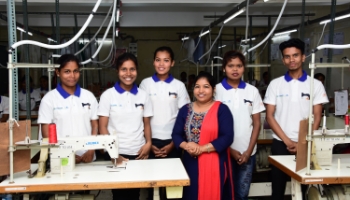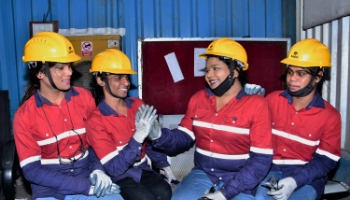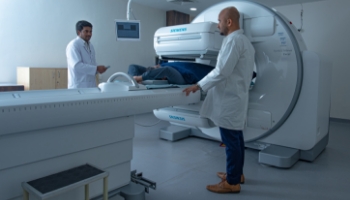Apr 07, 2023 . Read 5 min
Vedanta: Advancing Towards Digital Transformation
Team Vedanta
Digital transformation is no longer a choice but is necessary for businesses of all sizes to keep up with rapidly changing market dynamics and consumer needs. The advancement in robotics, AI, analytics, and cloud-based systems in our already hyper-connected world is revolutionising how we live and conduct business.
For a mining conglomerate, there are four essential reasons for a digital transformation. Firstly, it ensures a faster response or production turnaround in uncertain and changing market conditions. Secondly, the changing demography of the future workforce calls for the need to develop newer ways of working, collaborating and adapting different schools of thought and perspectives. Thirdly, the evolving industry dynamics due to mergers and acquisitions require quick changes in strategies for businesses to remain competitive in the market. Lastly, it is essential to create a digital thread between IT and OT systems to gain comprehensive and end-to-end visibility in the value chain.
The initial challenges included upskilling and cross-skilling employees in adopting new technologies and educating them on the urgent need for digital transformation. Although our employees were enthusiastic about digital solutions, we identified gaps in digital transformation, the market for end-to-end visibility in the entire value chain, and implementing industry best practices. That is why Vedanta launched the Industry 4.0 framework to help employees, especially those on the ground level, connect the business value chain with technological advancement.
Additionally, we launched several training and skill development programs like training for data scientists, upskilling boot camps, Think Digital sessions, and Management Act Up programs. The aim was to select talents to drive cultural changes across the organisation and accelerate this digital transformation towards new heights and innovations. The impact of digital transformation across Vedanta’s businesses has led to smooth operations, improved productivity, cost optimisation, a better quality of finished goods, and a reduction in rejections due to defects, among others. Furthermore, digitisation has helped bring a sweeping change in the mindset of our employees, reduced man-machine interactions, and improved the safety and geofencing of critical operating areas across businesses.
Vedanta implemented the digital transformation process in collaboration with startups, IT, and business consulting partners. We have a program called Spark which is designed to provide startups with the opportunities to demonstrate their impact on the company’s operations, safety, and productivity. In the past 2 years, over 1,300 startups were evaluated, and in collaboration with selected ones, Vedanta developed innovative solutions by giving them around 200 paid pilots across all our business units throughout different verticals. We are now in Spark 3.0, planning to engage more than 100 fresh startups and 150 new pilot projects for FY24.
At Vedanta, all our businesses have effectively implemented multiple digital transformation initiatives. Our subsidiaries have achieved notable successes, such as Improving throughput using APC (Advanced Processing Control) to transition from manual to automated adaptive control. Additionally, we are improving the quality of input raw materials using analytics to accurately predict coal blend and coke output properties without compromising quality output. It further ensures safety through computer vision and AI to proactively track and report safety violations and non-conformances within our plant premises. We moved 180 workstations to the cloud resulting in scalability, elasticity, seamless access, cost efficiency, and faster decision-making with reduced time to the first oil discovery. Furthermore, we have implemented asset reliability improvement using predictive maintenance wherein a machine learning predictive analysis is used for preventive care and planning of shutdowns. Lastly, we have implemented safety training through extended reality by using AR and VR technologies to transform information and knowledge into intuitive, engaging, and outcome-based learning solutions.









